
Travel Tips and Tricks for Those With Mast Cell Activation Syndrome and Histamine Intolerance
If you have Mast Cell Activation Syndrome or Histamine Intolerance, you know how challenging it can be to travel.
Travel can be both exciting and stressful at the same time. Especially when you’re managing mast cell issues, too.
But a little planning ahead and preparation can go a long way to making your journey smoother with fewer flares!
In this post you’ll read about:
- Common mast cell triggers when traveling
- MCAS travel tips for
- Stress
- Food
- Mold
- Chemicals
- Germs
- General tips for keeping mast cells calm
- Bonus tips for staying with family or friends
Let’s get started.
It’s important you know that this blog post is for informational and educational purposes. It’s not meant to treat any health condition or to be prescriptive for anyone. If you have any medical condition, it is critical you work under the care and guidance of a licensed medical provider.
Traveling With MCAS: Beth’s Story
It’s always nice to know you’re not alone. And you may recognize yourself in these stories, so we’ll share a few with you!
Beth traveled around the world. Sometimes those trips went well. But sometimes it made things much worse.
“I usually do well with car trips.
Without having to worry about a weight limit for my luggage, I can bring all the extra things I need to make my stay easier.
I can bring all my food in a cooler.
I can bring my own sheets and pillow. That keeps me from having to worry about detergents and chemicals on hotel linens.
And I can bring full sizes of my cleaning supplies and beauty products.
But that’s an ideal situation. Sometimes, this isn’t possible.
Several years ago, I went to India for 5 weeks. I couldn’t bring a carload of stuff. Especially perishable foods.
The trip was an experience I’ll never forget. But I did face some challenges.
It was hard to get low histamine food, for example.
There was also lots of mold. And then I got dysentery and severe dehydration. It took about 6 months for me to get close to being back to baseline again.
Not even well…just baseline.
After that, I chose less adventurous trips. But I didn’t want Mast Cell Activation Syndrome and Histamine Intolerance to ruin my love of travel!
So, I had to learn how to travel differently. I had to think about what my biggest triggers were and how I could deal with them.“
We’ll look at lessons from these travels and how to help keep mast cells calm. Let’s start with a quick look at what triggers you may encounter.
Travel and Mast Cell Triggers
Travel can bring many mast cell triggers:
- Stress
- Food
- Toxic chemicals
- Mold
- Germs
Other things can trigger mast cells, too. Things like vibrations. Think road rumblings and airplane engines.
Low oxygen levels on a flight can also be a trigger.
And you might be able to think of more.
For this post, we’ll focus on the biggest and most common ones we just listed.
So, what can you do if you have Mast Cell Activation Syndrome (MCAS) or Histamine Intolerance and still want to enjoy some beach time or a weekend in the city?
There are several steps you can take to support your health when traveling.
Let’s look closer how to handle common travel triggers, starting with stress. That can contribute well before you even step foot in the airport or put your luggage in the car.
Travel with MCAS: Tips and Tricks to Reduce Stress
You don’t want to start a trip with a flare.
Preparing for a trip can be stressful…even if you are looking forward to it. And stress is a big trigger for mast cells.
You’ve probably heard us talk about the parasympathetic and sympathetic parts of your nervous system. When you are stuck in sympathetic mode, your body is in an emergency state. It doesn’t have time or resources to deal with healing. And this sympathetic state actually INCREASES histamine and mast cell activation.
Related Post: How to Balance Your Nervous System with Mast Cell Activation Syndrome
This is why it’s so important to be able to shift to the parasympathetic mode. The parasympathetic nervous system is the opposite of the sympathetic nervous system. It’s the rest, heal, and digest state.
We’ll talk more about getting into that in just a bit. First, let’s look at some practical tips you can take to minimize stress when it comes to travel.
Make a Master Packing List
When you have Mast Cell Activation Syndrome or Histamine Intolerance, you won’t be able to grab a backpack and hit the road. You must do some planning.
Start by looking at your daily schedule. What products do you use?
Start making a list with those items. Pay careful attention to the ones you will have a tough time replacing if you forget them.
Things like:
- Supplements and medications
- Personal care products
- Necessary travel documents (like passports or driver’s licenses)
Then look at items like clothes and shoes. Basic internet searches can help you find lots of tips for planning outfits.
TIP: Look up what the weather is like for the time of year you plan on being where you are going. This can help you decide if you’ll need things like an umbrella, sun hat, or winter coat.
Put a copy of this list with your suitcase so, when the time comes to get packing, you’ll have it handy.
Pack a Few Days in Advance
Get out that list you made. Give yourself a pat on the back because you’ve done a lot of work already.
One less thing to stress about in the moments leading up to your trip!
Packing several days in advance gives you plenty of time to start getting items ready at your leisure. No rushing around looking for your swimsuit or washing your favorite jeans at the last minute.
And that means peace of mind.
With those lists already made, you can just check off items as they go into your suitcase!
And you won’t be up all night packing. You can get a good night’s rest.
Related Post: 9 Insomnia Relief Supplements
Plan, But Don’t Overplan
Allow yourself to relax on your trip. Don’t over-plan each day.
This will vary from person to person. But we have found that planning 1 adventure or outing within your capacity a day works for many. Then you can enjoy your non-scheduled time however you want.
If you are feeling energetic, you might look at the little shops nearby. Or stop in an art gallery off the beaten path.
If not, it gives you time to rest, relax, and refresh.
You can even plan a rest day in between if you need one!
If you plan your trip like this, you’re giving yourself permission to take care of you. And that frame of mind can reduce stress, too.
Next, let’s look a little deeper into how you can reduce stress by supporting your nervous system.
Support Your Nervous System
It’s tempting to skip this when you’re busy. But that’s when you probably need it most!
Your vagus nerve is the main activator of the parasympathetic nervous system. It’s the nerve that connects your brain with your heart and gut.
And your vagus nerve is a super strong anti-inflammatory agent. It calms mast cells.
A wide variety of exercises can improve vagal nerve signaling.
One exercise is something called box breathing. It’s called box breathing because you use the same count for each of the 4 parts – inhale, hold, exhale, hold. This is a good one to know because you can do it anywhere, anytime, with no extra equipment or programs. You could also try Resonant Breathing!
Breathing techniques are one way to lower stress and help get you to that parasympathetic state. But if you have Mast Cell Activation Syndrome, you’ll probably need more support.
Many people don’t know where to start. That’s why we’ve put together the Mast Cell Nervous System Reboot. It will help you both evaluate your own nervous system and build your own personalized daily practice.
Whatever you choose, don’t forget to incorporate nervous system balancing as part of your pre-travel support!
Next, let’s look at another common trigger you’ll come across when traveling. Foods.
Travel with MCAS: Tips and Tricks for Food
You may be eating higher histamine, higher oxalate, and higher lectin foods on vacation for a variety of reasons.
Let’s take a look at another trip Beth went on, and similar challenges you might face.
“A few years ago, I went to Seoul, South Korea. I had a wonderful time!
I was being hosted, and I wanted to be a good guest. Food is a very important part of Korean culture. I didn’t want to upset my hosts.
My health had been getting much better before the trip. So, I thought I’d be ok.
I had a lot of delicious, but very high histamine foods: soy sauce, kimchi, beef, spinach, fish.
And of course, many dishes are cooked for long periods of time, raising the histamine levels.
I also over-taxed my body with long flights, 18-hour days, and so many high histamine foods. And I ended up having a major flare. “
We’ve all overdone it and had a flare. And we hear many similar stories from clients, too.
Understandably, most people also don’t want to be a bother to people they are traveling with or hosts.
But you need to balance being accommodating with maintaining good health. And a little clear, kind communication can help!
Keep reading for ideas on eating when you travel with MCAS.
Bring Your Safe Foods List
Be sure to take the Mast Cell 360 Low Histamine Foods List with you. This way, if you aren’t sure what to eat, you can check your list.
We recommend printing it out.
That way, if you don’t have internet access, you can still see the list.
Choose Accommodations with a Kitchen
Look for places where you can cook.
If you have a kitchen, you can prepare or bring your own food. This can make a big difference.
Places like Marriott Residence Inns and Hilton Homewood Suites both have full kitchens. Or you might look into options like VRBO.
Typically, if you’re really sensitive, being able to make your own food means fewer issues.
You can do that in a couple ways:
1. Freeze Meals Ahead of Time
Frozen solid meals are ok through security at an airport. Just use a cooler bag and solid ice packs.
Don’t use the gel ones. Those aren’t allowed through security at an airport.
You can also talk with your doctor about writing you a medical note stating that special dietary requirements are necessary for you. That can help a lot.
And check the customs regulations for your destination.
You can also pack frozen meals in a cooler for a car trip.
Here are some histamine friendly ideas to help: Low Histamine Meal Planning
2. Go Shopping When You Arrive
This is another option if you don’t want to take frozen meals.
Find a grocery store and get the things you’ll need for your stay there.
With a full kitchen at your destination, you’ll have a fridge, freezer, and stove. You can shop fresh and have plenty of safe foods to prepare.
But what about eating out?
Dining in Restaurants
Being polite goes a long way.
A light-hearted “I have complicated food allergies, but I promise I’ll be very easy to deal with otherwise.” Usually gets a laugh and can go a long way to your server being accommodating.
Ask for what you need. Most restaurants can modify any dish on their menu. We’ve even had restaurants create a new dish from the ingredients they have stocked.
Everyone in the restaurant will appreciate it if you do your part to help them help you.
Sometimes, you’ll look at a menu and won’t see a low histamine meal option you can tolerate.
They might have an offering of beef with a creamy broccoli and mushroom sauté.
And another choice which offers chicken in alfredo sauce served over wheat pasta with a side of asparagus.
While neither meal, as offered on the menu, may work for you. What it may tell you is that they do have foods you can eat.
They have chicken, broccoli, and asparagus. Many people can tolerate those!
When a simple substitution isn’t obvious, you can make a written list to help.
Start by looking at what’s on the menu. Stick to what they list. For example, don’t ask for arugula and blueberries if you don’t see them anywhere on the menu.
Based on what they have, write what you can eat on one side of a piece of paper and what you can’t on the other. Like this:
I can eat:
- Chicken
- Broccoli
- Asparagus
- Olive Oil
- Salt
- Pepper
- Garlic
I am allergic to:
- Gluten
- Corn
- Soy
- Dairy
- Mushrooms
Then politely ask if the chef can make me a meal with the things you can eat.
You can even go a step further and look at menus and write down your lists ahead of time!
Going during off-peak times, when the restaurant isn’t packed and busy, can also be really helpful for the staff to accommodate your needs.
Eating Meals Prepared by a Host
Disclosing health issues can help a host understand you aren’t being rude. But explaining Mast Cell Activation Syndrome (MCAS) is probably more than you want to get into, especially if there is a translator.
You might stick to just saying you have a lot of food allergies. And offering a list of things that are safe for you to eat.
And be sure to bring extra mast cell supporting supplements with you.
You’ll want to know what works best for you well in advance of your trip. We wouldn’t advise starting a whole new routine right before your big travel plans.
Related Post: The Best Antihistamine for Histamine Intolerance and Mast Cell Activation Syndrome
Next let’s look at another trigger you might find when you get to your destination — mold.
Travel with MCAS: Tips and Tricks for Mold
Unfortunately, hotel rooms often have mold.
Carpets are shampooed frequently. But they don’t always dry fully. And where there is moisture, there is usually mold.
Beach or lakeside rentals are also likely to have mold because of the surrounding environment.
Mold can be a trigger for Mast Cell Activation Syndrome and Histamine Intolerance by:
- Disrupting hormones
- Dysregulating and dampening the immune response
- Disrupting the nervous system
- Clogging detox pathways
Related Post: Top Signs you Have Mold Toxicity
You can take a few steps to help with mold, though.
Watch Out for Musty Odors
If your room has a musty odor, ask (very nicely) to change rooms.
A musty odor is an indicator of high mold levels.
Like with restaurants, being kind and polite, with a brief and gentle explanation of your health concerns, will go a long way.
Treat the Room for Mold
When it comes to mold, we have some products we never travel without!
If you’ve never used these before, try them out ahead of time.
To help with mold in hotel rooms, you can try the BioBalance Travel Mister. Just follow the instructions on the label.
EC3 Spray and candles also work really well. Some of our team prefer these. Follow the directions on the products.
>>> Click here and use code MC360 to get 10% off EC3 products!
Travel-Sized Air Purifier: HypoAir Air Angel
We also like to take our HypoAir Air Angels along.
These little air purifiers are portable!
Related Post: The Air You Breathe Could Be Triggering Your Mast Cell Activation Syndrome
You can place it on your bedside table when you sleep and bring it out into the living area during the day.
And they are chemical-free and hypoallergenic. HypoAir uses polar ionization instead of ozone or synthetic fragrances.
HypoAir Air Angels help to:
- Reduce airborne pathogens
- Certain viruses
- Bacteria
- Mold spores
- VOC odors
- Sanitize hard surfaces – helps neutralize microbes
- Viruses
- Bacteria
- Molds
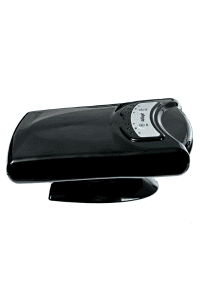
>>> Click here and use code MASTCELL360 for 10% off at HypoAir
And they don’t just help with mold! They also help with chemical toxins.
Next, let’s look at where you might see those.
Travel with MCAS: Tips and Tricks for Toxic Chemicals
You will probably encounter some toxic chemicals when you travel.
We don’t mean toxins like radiation leaks or industrial waste.
We’re talking about chemical toxins like those found in many beauty or cleaning products. Things like fragrance, aluminum, and nanoparticles.
For example, hotel shampoos and soap aren’t likely to be MCAS friendly. Neither are the cleaners they use. And you might end up on a flight or tour bus with people wearing lots of fragrances.
If you do have sensitivities, you’ll want to plan accordingly.
Here are some tips for what to do to reduce your exposure to chemicals when you take a trip.
Let Hotel Staff Know You Are Allergic to Most Cleaning Products
Some hotels have rooms set aside for guests with asthma or chemical sensitivities. You can call ahead and ask or ask when you are booking your room.
If not, ask for your room to be serviced without cleaning products. This reduces your exposure to toxic chemicals.
As another alternative, you can also ask for a room that has been empty for a few days when you check-in. So the scents have had a chance to clear a bit.
Bring Your Own Pillows and Sheets
Traveling with your own pillow can be a comfort. And that little bit of extra comfort helps you sleep better. Plus, you won’t have to worry about an unsupportive hotel pillow.
Bringing your own pillow and sheets can also help reduce your exposure to toxic chemicals and fragrances in laundry detergent or bleach.
You might want to keep an extra set in your suitcase if you travel often. These sheets are good ones:
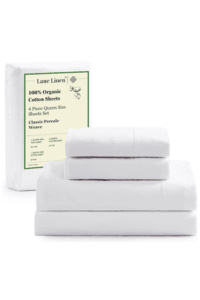
Let’s take a look at germs next, then we’ll share some general travel tips with you.
Travel with MCAS: Tips and Tricks for Germs
Cold viruses can survive for around seven days. Flu viruses can survive around 24 hours.
So how does that affect you when you travel?
The previous guest in your room checked out at 11am. She was sick with a cold. You checked in at 4pm. Which means those germs can still be alive and well when you get there.
And you’ve probably noticed that anytime you get sick, you have a flare.
Bottom line: germs make you sick. Being sick causes mast cells to activate.
After all, that is one of the very important jobs of mast cells. They are workers in your body’s immune system response.
But when you have Mast Cell Activation Syndrome, being sick can start a downward spiral.
Your mast cells start to release chemical mediators. Some of these mediators are inflammatory. Inflammation causes more histamine release. More histamine release can cause more mast cell activation.
So, here are ways to take care of yourself and stay healthy when you’re traveling.
Avoid Touching Your Face
It’s surprising how much we touch our faces without even realizing it.
You especially want to avoid touching surfaces and then touching your mouth or eyes.
Obviously, not touching your face while you’re out and washing your hands well will help.
You can also use gloves when you travel, like these white cotton gloves.
Used gloves can go in a plastic storage bag to be washed when you get home. We like that they are reusable.
Disinfect Seats and Tray Tables
Wiping down where you are sitting on the plane can also be helpful.
You can kindly ask the gate staff to board early. Just let them know you have an immune condition and need some extra time to wipe down your seat area.
They don’t always let people board early, but more often than not they say yes.
Wipes like Seventh Generation Disinfectant Wipes can be helpful for this.
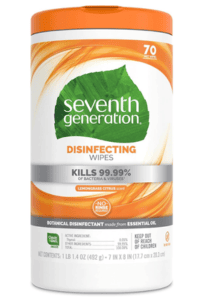
Wearing gloves, wipe down the:
- Seat – including headrest, back rest, and arm rests
- Seatbelt and buckle
- Air nozzle and call button
- Tray table
- Seat pocket and any contents you’ll be handling like safety guides
- Window shade if you are in a window seat
Put the used wipes in a bag and discard.
Just be sure to bag your wipes in a couple of layers of sealed, gallon-size storage bags when you travel. It helps protect your belongings in case of leaks.
Turn Air Flow on High During Your Flight
Air that doesn’t move concentrates germs.
Use your disinfectant wipe to turn the air flow on high. This will help keep the air moving so germs don’t linger.
Disinfect Your Room When You Arrive
Once you arrive at your hotel or other lodgings, you can wipe down commonly touched surfaces.
If you tolerate it, you can use Seventh Generation Disinfecting Multi-Surface Wipes to wipe down places like:
- Doorknobs and handles
- Light switches
- Dressers – handles and surfaces
- Refrigerator handles – both inside and outside
- Sinks, tub, toilet
- TV remote
- Kitchen area (if staying in a room with a kitchen)
Or you may prefer spray disinfectants for easy application.
You may be able to tolerate one of the scents below from Seventh Generation, they have Lavender, Eucalyptus, and Citrus.
We’ve covered a lot! Here are a few final tips for calmer mast cells.
Travel with MCAS: General Travel Tips for Calm Mast Cells
A few simple tips that go a long way to supporting calm mast cells.
Stay Hydrated
Dehydration can weaken your immune system.
It is easy to get dehydrated, especially on flights. The air in the plane can be very dry.
Bring extra water on the plane with you. Yes, buying bottled water at the airport is expensive. But it is worth having it.
And did you know that water is a natural antihistamine? Drinking water will help decrease histamine reactions.
For each 2 to 3 hours of flight or drive time, drink 1 to 2 liters of water. And drink plenty of water after you arrive.
Also, avoid caffeine. It’s dehydrating.
Drink H2 Water
Hydrogen water keeps you more hydrated.
It is also an excellent anti-inflammatory support.
Some people use about 4 to 6 tablets throughout a travel day.
If you are trying this for the first time, start with sprinkles or a sliver. Just dissolve it in in 8 oz of water. Then drink after it stops bubbling.
And we always suggest trying things ahead of time.
H2 water is very safe. The only contraindication is SIBO. Don’t use if you have active SIBO.
We like these H2 Elite Hydrogen Tablets
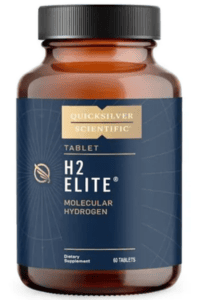
Increase Supports
Increasing your mast cell and histamine supports before and during your trip can also help keep flares away.
These are things you can talk to your practitioner about:
- Putting together your own list of supportive supplements
- Increasing the supplements you can safely do 2-3 days before travel and through the trip
- Filling out your flare plan
Here are a few from our own “Travel Kits“:
- Alpha-Glycosyl Isoquercitrin
- Perilla Seed Extract
- Charlotte’s Web CBD Oil
- Chinese Skullcap / Baicalin
- Epsom Salts for a bath (nothing beats a good soak after a long day!)
Want to learn more about mast cell supporting supplements? Check out our class, the Top 8 Mast Cell Supporting Supplements.
Bonus Tips for Staying with Family or Friends
Staying with family and friends can present some unique challenges when you have MCAS or Histamine Intolerance.
These tips can help:
- Let them know you have a medical condition – letting someone know you have a medical condition seems obvious, but sometimes it can be hard to know how.
- You don’t have to go into specifics. Just say you have an immune disorder that results in a lot of serious allergies.
- Be kind, clear, and grateful – sometimes, family may be pushy because they mean well but don’t really understand. “Oh, one piece of chocolate cake won’t hurt!” Explaining clearly with kindness can help you and them. Simple phrases like these are good to keep tucked away in your brain so you’re ready if it comes up:
- Thank you for thinking of me. I brought my own ____ (ie, dessert), so I can enjoy it and still feel well.
- Thank you for thinking of me. If I do that, I’ll feel very sick later. I’d rather enjoy the company.
- I’ve been dealing with this for a long time. And I really appreciate you being supportive while I’m visiting. Thank you for trying to help me.
- I don’t want to make this hard on you. I’ll be glad to take care of my own needs while I’m here. And I really appreciate staying here. I just need help with (fill in the blanks of what you need).
- What are other phrases you can think of?
- Remove scented products – let your host know you are allergic to scented candles, plugins, and laundry detergent.
- Ask politely to not have these in your room.
- Bring your own sheets – if you have sensitivities, it may be easiest to bring your own bedding.
- Let your host know you have an allergy to detergent, so you usually just bring your own sheets to make it easy. Ask what size you should bring.
- Communicate about food – do this ahead of time.
- Let your family know that because you have food allergies, you might need to bring or prepare your own food.
- If you will be dining out – let them know having a couple of options to choose from a few days ahead of time will make it easier for you.
You might feel overwhelmed thinking about your trip. Or reading about all the things that can cause a flare up when you travel. But you can have fun and stay healthy when you travel!
It might be as simple as a day trip to a family reunion. Or you might be planning ten days abroad.
In the end, no matter where you are going, how you are getting there, and how far away…enjoy your journey.
What travels tips would you add? What has helped you avoid a flare while traveling?
More Low Histamine Lifestyle Tips
- Skin Care Guide
- Safe and Non Toxic Cleaning
- Tips for Cleaner Water – AquaTru Water Filter Review
- Using Gratitude to Calm Mast Cells
- Low Histamine Lunch and Dinner Ideas for Celebrations – Plus Top Tips for Less Stress Celebrations with MCAS
Some links in this website are affiliate links, which means Mast Cell 360 may make a very small commission if you purchase through the link. It never costs you any more to purchase through the links, and we try to find the best deals we can. We only recommend products that we love and use personally or use in the Mast Cell 360 practice. Any commissions help support the newsletter, website, and ongoing research so Mast Cell 360 can continue to offer you free tips, recipes, and info. Thank you for your support!

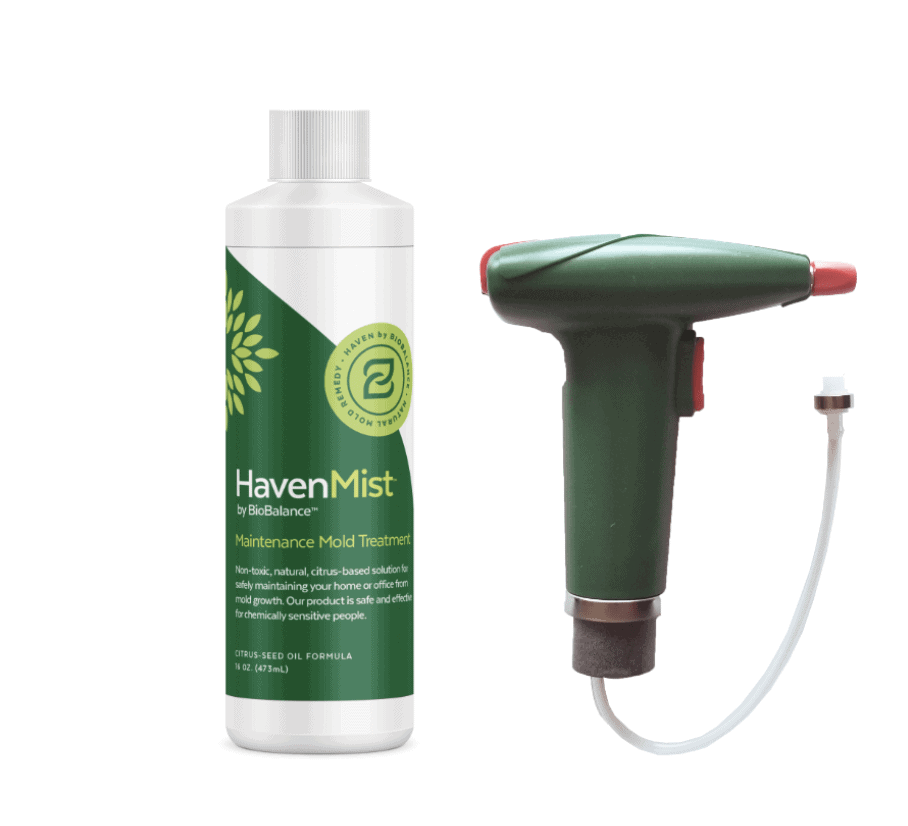

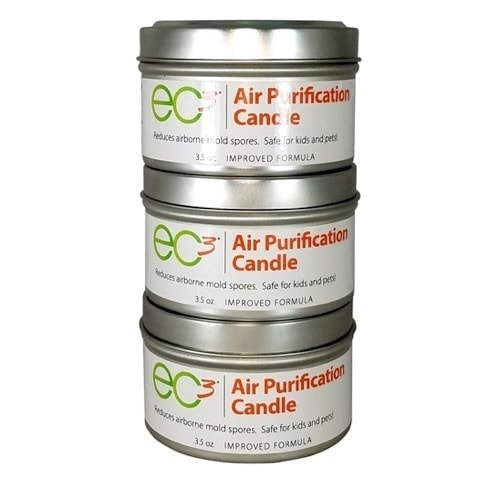
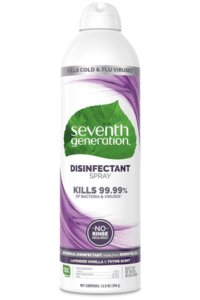
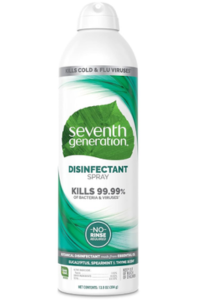
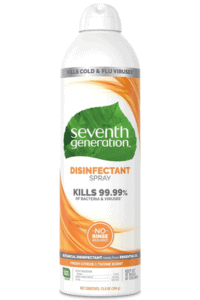
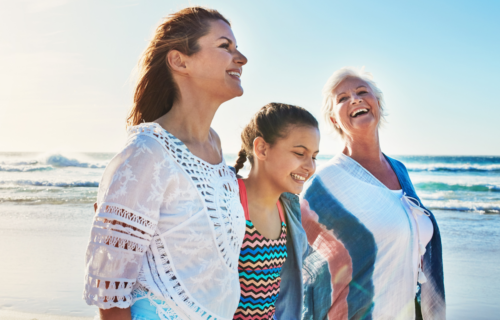
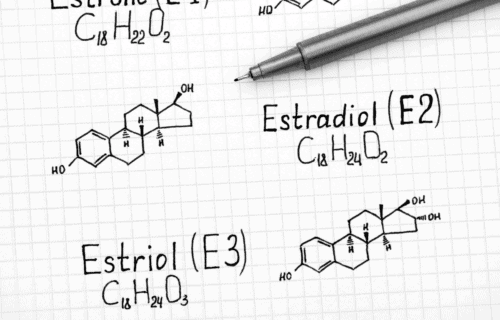

It might be worth noting that H2 water is energizing, which is fantastic unless you take it too late in the day, which might keep you awake at night. Taking it first thing in the morning or early afternoon might be best. Organizing all of my supplements is always the most time consuming thing about travel prep, and too often I’ll leave something behind that will help me function when I arrive at my destination. I’ve learned that flying, in and of itself, can really knock out your mitochondria, if you are already in a compromised position, but I can’t remember the details on how that works. I know flying makes me feel pretty awful and I don’t do it unless I have a family obligation. I hope I’ll be able to enjoy it, and traveling, again someday.
Hi Chris, thank you so much for sharing your insight and experience with the community! We hope you’re able to enjoy traveling again too! Best of luck on your healing journey.
While traveling, would it be better to bring the HavenMist, or the Air angel (as mentioned in a previous air quality post)?
Thanks for all your insights!
Hi Amber! Both are great options for traveling! If flying and not checking a bag you may be concerned about liquid in which case the hypoair air angel could be a great solution. Both would be an added level of protection so based on your individual needs or travel plans you could choose either one or both! Hope you have a great trip!
The elephant in the room in all of this is EMF sensitivity. Has anyone been able to reconcile travel with EHS as well as all the other sensitivities?
Hi Angela,
We understand that EMF sensitivity can make traveling challenging. You may find this blog post on EMF Protection tips helpful and informative: https://mastcell360.com/the-best-emf-protection-tips-for-easy-and-effective-relief/
Best,
Zack